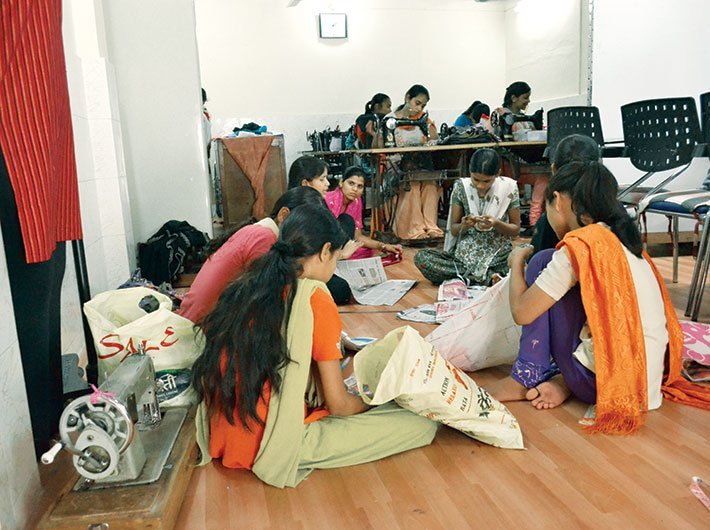One in every 10 Indian is an adolescent girl. Consequently, India hosts nearly 20 percent of the world’s population of adolescent girls and each and every one of them has the potential to contribute to India’s future economy, says the report, ‘Best Foot Forward: Enhancing the Employability of India’s Adolescent Girls’ by Dasra, an NGO.
The report commissioned by Bank of America points out that India’s disadvantaged adolescent girls stifled by social and economic challenges, struggle to claim their place in one of the fastest growing economies in the world and become self-sufficient .
“Entire sections of rural India are cut off from national economy and the workforce participation rate for Indian women is 29% which is far less than that of comparable economies like China(70%), US(66% ) or Brazil (65%). Better skilled youth and concerted efforts to bring rural youth and women into workforce require concerted efforts.”
For many marginalised girls in India, there is lack of control over decisions that determine the course of their lives, restriction on mobility and limited access to public spaces, interrupted education, inability to challenge social norms, resisting early marriage and pregnancies, vulnerability to violence at home and in labour market and increasingly limited opportunities to acquire skills needed to build financial security or independence.
The report findings show that school curricula in India is not designed to help marginalised girls to access or create income generating opportunities and employability programs so as to help plug this gap by supplementing school education with training in hard and soft skills. It adds that programs initiated under the Skills India Campaign and those run under Ministry of Skills Development and Entrepreneurship focus purely on hard skills training for youth without accounting for challenges like restrictions on mobility and social pressure to get married that young women face. It also points out that few non-profit and government interventions are currently working with economically marginalised, disabled and adolescent girls including those living in areas of conflict, belonging to scheduled castes and scheduled tribes or those with disabilities.
The findings recommend employability programmes to enable adolescent girls understand and articulate their needs with parents, relatives, community members and other key decision makers in their lives and successfully negotiate for their rights. Employability programs that influence a cultural change in perceptions around women’s roles with a consolidated long term focus on overturning gender norms that negate a young women’s earning potential and ability to participate as decision makers.
It calls for the government schools to make curriculum more relevant by establishing clear links with school education and higher economic returns for adolescent girls and their families. The report also calls for employability programs to create open spaces for girls to interact with their peers, learn from each other and isolated girls to draw strength From these social networks. Connect girls struggling to articulate their concerns with mentors they can confide in and learn from including skills like computer training, book-keeping, accounting and driving that defy stereotypes and provide wider range of income generating opportunities.
“Women are most likely to invest their assets in their children and improve inter-generational development outcomes,” it says.
It also calls for introducing effective implementation of policies on sexual harassment, maternity benefits and crèche facilities for young mothers, promoting gender equality at workplaces for protective and supportive work environment including focussed modules on entrepreneurship, skills training within the curricula of employability programs to build girls capacity for problem solving, management of finances. It also asks for people and resource mobilisation and evaluating non-profit interventions and government programs so that gaps and best practises are identified.
“Hence there is clear policy- level need for investing in girls and providing them with economic alternatives that allow them to build identities apart from their roles as future wives and mothers,” says the report.

